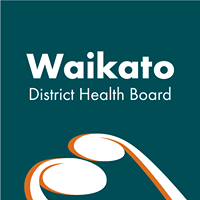Media Release
Date: Friday 28 June 2013
Waikato DHB to Introduce Internationally Recognised Ward-Round Regime
As part of an ongoing commitment to patient safety, Waikato DHB will soon implement the internationally recognised ‘Intentional Rounding' process to improve consistency in the way nurses carry out their care regimes.
Intentional Rounding is the process of systematic nursing rounds. Rounds are undertaken hourly using a combination of the registered nurse, enrolled nurse and health care assistant.
The process is not new, but rather based on the "back rounds" nurses did when patients were bed bound for longer periods of time than they are now.
“Intentional Rounding is said to be most effective if nurses focus on specific areas. The most recommended are the three Ps: pain, personal needs and positioning,” director of nursing and midwifery Sue Hayward said.
“Sometimes patients feel as though they go too long without seeing a nurse. So from a patient’s perspective, Intentional Rounding provides a higher degree of comfort because a nurse or a carer is visible to them on a more regular basis.”
Intentional Rounding has shown in both USA and Britain to support a reduction in pressure ulcers, falls, complaints, and call bells being rung.
Mrs Hayward says the introduction of Intentional Rounding at Waikato DHB comes from an increasing awareness of the “absolute importance around patients’ experience of care delivered.”
“As patients’ length of stay decreases, care is of course condensed into a short period of time. This is leading to a ‘busyness’ that can almost be likened to an industrial scale of healthcare delivery, with a corresponding increasing risk that the human touch is lost,” she said.
“Introducing Intentional Rounding will help nurses to better prioritise their workloads and give patients confidence their needs will be met.
“I am convinced nurses will enjoy the structured aspect and patients will feel increasingly comfortable knowing that they will see someone at least hourly who will be equipped to help and support them.”
The process also fits “extremely well” within the framework of the National Patient Safety Campaign coordinated by the Health Quality & Safety Commission, and implemented regionally by district health boards and other health providers.
The focus of the national campaign is on four key areas where evidence shows it is possible to reduce patient harm – falls, surgery (perioperative harm), healthcare associated infections and medication safety. Each topic will be rolled out sequentially, with falls the first area of focus.
Waikato DHB’s Intentional Rounding timeline and implementation process is still under development and pilots will be undertaken before the process is officially implemented.
ENDS



 Tertiary Education Union: Weltec And Whitireia Cuts A Shocking Blow For Their Communities
Tertiary Education Union: Weltec And Whitireia Cuts A Shocking Blow For Their Communities PHARMAC: Pharmac Proposes To Fully Fund Nutrition Replacements For Some People With Crohn’s Disease
PHARMAC: Pharmac Proposes To Fully Fund Nutrition Replacements For Some People With Crohn’s Disease Nōku Te Ao: Bringing Together Voices On Mental Distress, Stigma And Discrimination Under One Roof
Nōku Te Ao: Bringing Together Voices On Mental Distress, Stigma And Discrimination Under One Roof Office of Early Childhood Education: Early Childhood Education Sector Confidence Survey Results 2025
Office of Early Childhood Education: Early Childhood Education Sector Confidence Survey Results 2025 Bikesport NZ: Intrepid Kiwi Teen Ready To Accept New Challenge
Bikesport NZ: Intrepid Kiwi Teen Ready To Accept New Challenge Wellington Access Radio: Young People Take Over Wellington Access Radio For Youth Broadcasting Week 2025
Wellington Access Radio: Young People Take Over Wellington Access Radio For Youth Broadcasting Week 2025